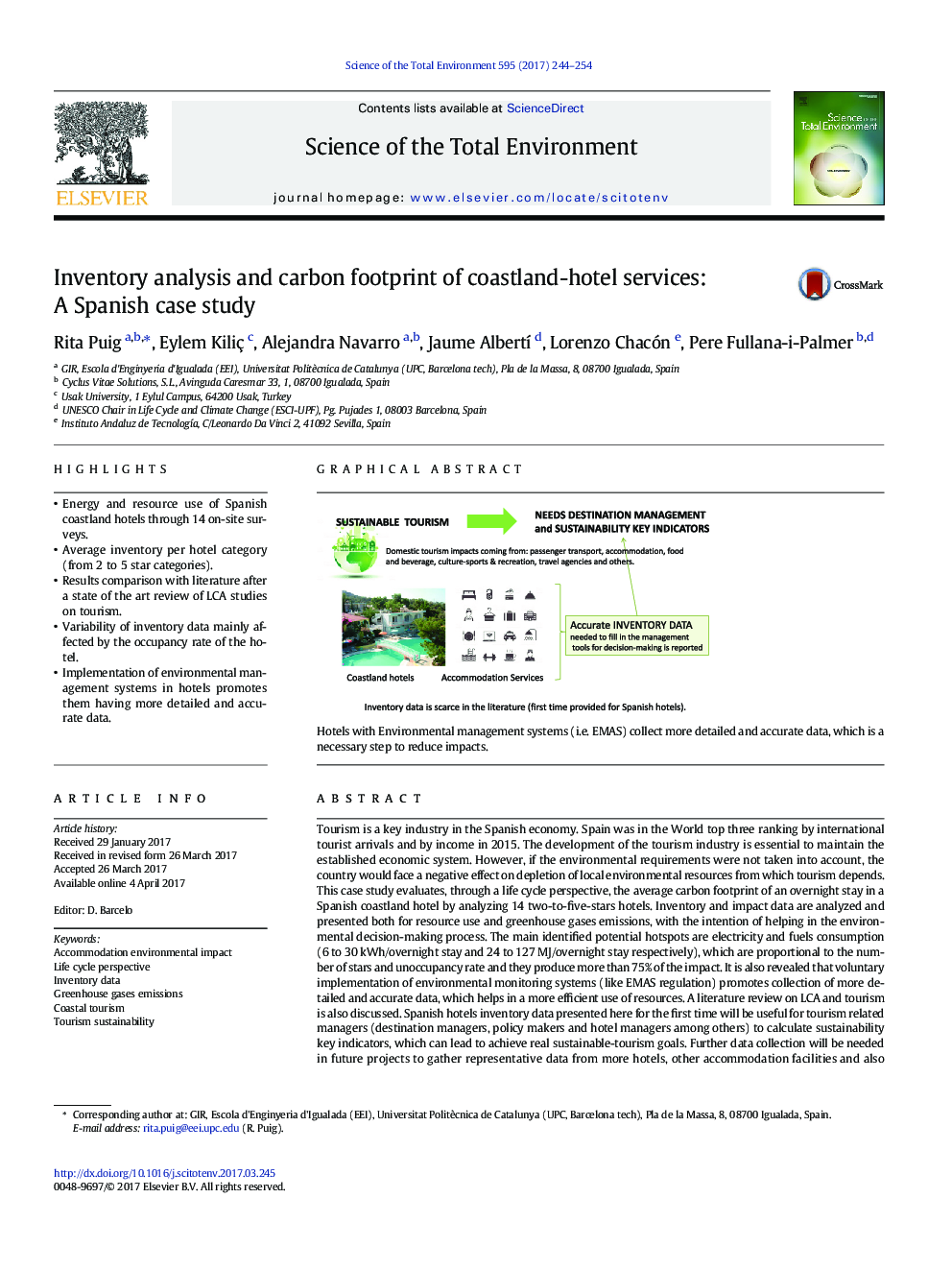| کد مقاله | کد نشریه | سال انتشار | مقاله انگلیسی | نسخه تمام متن |
|---|---|---|---|---|
| 5751281 | 1619701 | 2017 | 11 صفحه PDF | دانلود رایگان |
- Energy and resource use of Spanish coastland hotels through 14 on-site surveys.
- Average inventory per hotel category (from 2 to 5 star categories).
- Results comparison with literature after a state of the art review of LCA studies on tourism.
- Variability of inventory data mainly affected by the occupancy rate of the hotel.
- Implementation of environmental management systems in hotels promotes them having more detailed and accurate data.
Tourism is a key industry in the Spanish economy. Spain was in the World top three ranking by international tourist arrivals and by income in 2015. The development of the tourism industry is essential to maintain the established economic system. However, if the environmental requirements were not taken into account, the country would face a negative effect on depletion of local environmental resources from which tourism depends. This case study evaluates, through a life cycle perspective, the average carbon footprint of an overnight stay in a Spanish coastland hotel by analyzing 14 two-to-five-stars hotels. Inventory and impact data are analyzed and presented both for resource use and greenhouse gases emissions, with the intention of helping in the environmental decision-making process. The main identified potential hotspots are electricity and fuels consumption (6 to 30Â kWh/overnight stay and 24 to 127Â MJ/overnight stay respectively), which are proportional to the number of stars and unoccupancy rate and they produce more than 75% of the impact. It is also revealed that voluntary implementation of environmental monitoring systems (like EMAS regulation) promotes collection of more detailed and accurate data, which helps in a more efficient use of resources. A literature review on LCA and tourism is also discussed. Spanish hotels inventory data presented here for the first time will be useful for tourism related managers (destination managers, policy makers and hotel managers among others) to calculate sustainability key indicators, which can lead to achieve real sustainable-tourism goals. Further data collection will be needed in future projects to gather representative data from more hotels, other accommodation facilities and also other products/services offered by tourist sector in Spain (like transport of tourists, food and beverage, culture-sports & recreation and others).
Hotels with Environmental management systems (i.e. EMAS) collect more detailed and accurate data, which is a necessary step to reduce impacts.Although it is necessary for a better sustainable planning, inventory data is scarce in the literature (first time provided for Spanish hotels).296
Journal: Science of The Total Environment - Volume 595, 1 October 2017, Pages 244-254
